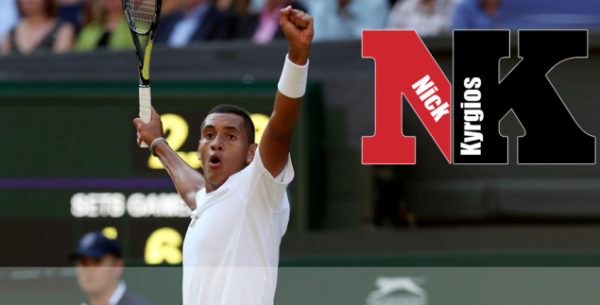
After Olympic Head of Mission Kitty Chiller said that Nick Kyrgios ‘doesn’t really understand what it means to be an Australian Olympian’, the Canberran tennis hotshot turned to social media for guidance and support. Over 2,400 of his facebook friends offered mostly encouraging comments.
He also reposted a tweet in which he was told to “go home f#&king greek”. This message echoes Dawn Fraser’s call last year for Kyrgios and Bernard Tomic to “go back to where their parents came from”. Kyrgios has been quick to call out racism and express his love for his Malaysian and Greek roots along with his eagerness to play for Australia.
The brouhaha over whether Kyrgios belongs, reveals a good deal about the power and anxieties of contemporary Australian whiteness.
While we often hear about black, Asian, indigenous or hybrid identities, it’s harder to pin down what it means to be white. Moreover, unless you’re a white supremacist, discussing whiteness can be disconcerting because it raises questions about how white culture came to influence much of the world.
It’s the invisible nature of white identity that makes it so pervasive in terms of what Australians and other Anglo-centric countries consider to be fair and acceptable.
Sport can help us understand what it means to be white. In England, cricket and tennis are anchored in age-old white traditions that make for gentlemanly or sportsman-like conduct (gendered terms intended).
Iconic American sports are white in a more technocratic way. Strategic, equipment laden and high scoring sports like American football and baseball reflect an American view that overall, the team that invests the most in terms of money, effort, discipline and planning should win.
White sports emphasise orderly conduct and unambiguous outcomes.
Soccer is thus the world game in part because it’s not predominately white. The soccer aficionado accepts that the best team doesn’t always triumph, that there are plenty of draws and that most games are not action packed. In this way, soccer is a microcosm of real life.
It follows that taking your time to undo and do up your laces and thereby protecting your lead in the dying seconds of a match, screaming and clutching at your face after you’ve been hit on the leg or reminding an opponent of his partner’s sexual history – while by no means reputable – are acceptable and indeed can enhance the beauty of the game-as-life.
Of course few if any sports or indeed athletes are entirely white or non-white. We all take on varied identities. Kyrgios is in complex ways Canberran, Malaysian, Greek, young, seemingly middle class and heterosexual. However, one cannot fully comprehend the furore around him without considering how his blackness stirs white anxieties.
Kyrgios also illustrates how non-whites are as essential to some white sports in the same way that gladiators were essential to the Roman games.
Problems arise when black male athletes in particular challenge the rules, refuse to follow protocol and rattle the bars of their golden cages. They threaten patrons by doing a spear dance, raising a fist at a medal presentation or simply expressing a desire not to play.
Such racially defiant acts resonate powerfully in Australia because the sporting arena is a sacred place where boys become men, where we learn about sacrifice and fairness, and where we seek belonging and glory. Observant and respectful non-whites are welcome. However any deviant behaviour can turn the best and fairest non-white athlete into an ingrate, a sook, a hostile foreigner.
Nick Kyrgios may well need to have a good hard look at himself, but if we accept that Australia is a multicultural society then perhaps we should also examine Aussie whiteness.
Do you think Canberra’s Nick Kyrgios is a victim of racism? Should the furore over him be understood in racial terms? Are there white and non-white ways to play sport and live life?
Kim Huynh lectures international relations at the ANU. He has a pop politics segment on ABC 666 Breakfast and has recently published a (free) collection of novellas entitled Vietnam as if… Tales of youth, love and destiny (ANU Press). https://researchers.anu.edu.au/researchers/huynh-kt














